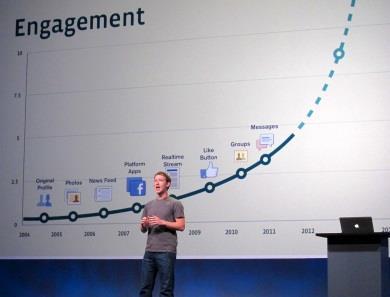NHS innovators have much to learn from the leviathans of the technology world, says John Craig

Why can’t the NHS be more like a tech start-up? Why can’t it shift its strategy overnight and innovate in weeks, instead of years?
Actually, there are lots of reasons, not least the health service’s age, size and complexity.
At the same time – and this is a frustration many have felt – why is innovation so tough in the NHS when it is so critical and when it can look so easy elsewhere?
Different stars of software neatly encapsulate three stories about how to change the world. There are open source revolutionaries such as Linus Torvalds, developer of Linux, for whom the world is changed by changing the system. There is Facebook’s Mark Zuckerberg, for whom the world is changed by building a movement. And there is Amazon’s Jeff Bezos, for whom the world is changed by making the customer king.
We can strengthen innovation in the NHS by learning from each.
The Torvald method: change the system
Those like Linus Torvalds, who try to change the world by changing the system, remind the NHS that power, money and knowledge matter hugely for innovation.
Changing how the NHS pays for care
Paying for outcomes and for longer episodes of care has helped to spark such innovations as the Year of Care, which take an integrated, long-term view of patients’ needs.
Changing what we measure
Including patients’ own perspectives on their outcomes and experiences makes it easier for new approaches to prove themselves and grow.
Shifting power to patients
Enabling them to design and manage their own healthcare also disrupts medical orthodoxy, allowing peer led approaches like those of the Lambeth Living Well Collaborative in mental health services.
Changing what leaders at the top say and do
This matters hugely. From dementia to the search for new antibiotics, where leaders champion innovation, make their priorities clear and invest, innovation is much more likely.
The Zuckerberg way: build a movement
Those like Mark Zuckerberg, who seek to change the world by building a movement, show the NHS the importance of supporting innovators themselves to transform the NHS from the inside.
Helping innovators to understand people better
This sparks innovation. For example, Macmillan Cancer Support has created a powerful set of patient stories, insights and outcomes that sit at the heart of its work, and are helping to transform cancer services. Across the NHS, we need to better understand who we are innovating for.
Helping to connect innovators to the best ideas from around the world
This saves enormous time and effort and raises quality. From patient hotels in Sweden to safer, lower cost heart surgery in India, some examples of international practice are well known, but there are far too few of them. For an NHS obsessed with evidence and quality, the dearth of international collaboration is striking.
Helping innovators to benefit from advances in technology
This is critical, but very difficult in the NHS, which veers from a top-down approach to a free for all. While Google’s X-Lab works on nano-pills to detect cancer and heart disease, access to basic patient data is still a huge barrier to NHS innovation.
The Bezos philosophy: make the customer king
Those like Jeff Bezos who have changed the world by making the customer king remind the NHS that it needs a relentless focus on patient experience. While debates about structures and sectors rage, all too often this get lost.
Enabling innovators to change where healthcare happens
There are countless opportunities. For example, consultations by Skype can reduce costs and cancellations. Equally, social prescriptions – pioneered as part People Powered Health – help people to access support for their health, anywhere from knitting groups to walking clubs.
Enabling innovators to change who deliver healthcare
From new roles such as community pharmacists to enhanced roles for nurse prescribers, creating the space to prototype new roles in the NHS has huge potential.
Enabling innovators to change how healthcare
From group consultations – for example, those in Innovation Unit’s work to transform antenatal care – to practices such as collaborative planning, changing the script for how clinicians and patients interact unlocks huge opportunities to help patients do more to look after themselves and one another.
John Craig is Managing Partner at the Innovation Unit























No comments yet